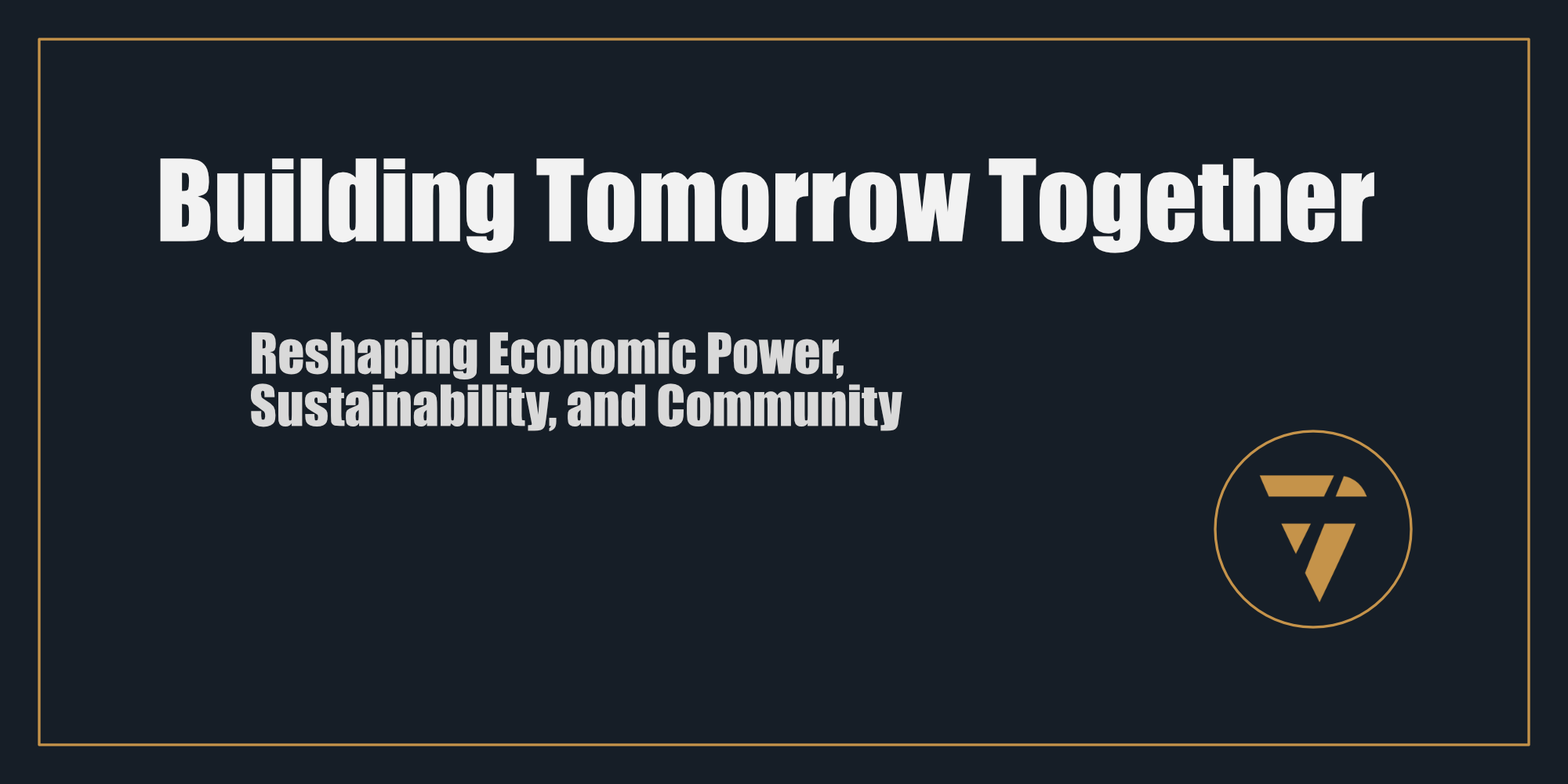Building Tomorrow Together
Reshaping Economic Power, Sustainability, and Community

What If the Rules That Govern Us Were Made for Someone Else?
Have you ever wondered why economic systems feel so rigid? Why they often seem to work against fairness and progress? For years, arbitrary fiscal rules and concentrated power have dictated how resources flow, stifling innovation and reinforcing inequality. Yet, the future doesn’t have to look like the past.
The start of a new year invites us to rethink what’s possible and take bold steps toward change. Let’s explore three transformative resolutions and the concrete actions we can take to turn them into reality.
1. Speak Out Against Arbitrary Fiscal Rules and Power Imbalances
The first step to dismantling harmful systems is understanding them. Fiscal rules—budget caps, austerity measures, and tax structures—often masquerade as neutral but are deeply political. These policies prioritize the interests of a few, often at the expense of the many.
The Challenge
How do we confront a system designed to benefit those in power? Speaking out can feel overwhelming, but collective voice holds real strength.
Action Plan
- Educate and Engage: Host workshops or webinars explaining fiscal rules in simple terms. Break down how these policies impact local communities, using relatable examples.
- Build Advocacy Networks: Partner with grassroots organizations to amplify your message. Look to successful movements that have challenged similar structures globally for inspiration.
- Leverage Data for Impact: Use accessible statistics and visual tools to highlight inequalities created by fiscal policies. Storytelling combined with data can sway public opinion and policy.
2. Envision and Build a Fairer, Sustainable World
A sustainable world isn’t just a dream, it’s a collaborative project. The transition to equity and sustainability demands new systems, bold experimentation, and the willingness to disrupt the status quo.
The Challenge
Too often, “sustainability” is co-opted as a buzzword. True transformation requires addressing the roots of inequity while balancing environmental and social goals.
Action Plan
- Start Locally: Create pilot programs in your community, like cooperatives, regenerative agriculture projects, or localized clean energy grids. These initiatives can become blueprints for broader change.
- Integrate Community Wealth-Building Models: Adopt frameworks that prioritize shared ownership and investment in local resources. Engage local governments to redirect budgets into equitable, green initiatives.
- Inspire Through Collaboration: Showcase case studies where fairness and sustainability have thrived together. From worker-owned businesses to green affordable housing, stories can inspire widespread replication.
3. Support Communities to Build Power and Win Change
Real change happens when communities are empowered. Grassroots organizing, strategic partnerships, and shared resources can transform groups into unstoppable movements.
The Challenge
Communities often lack access to tools, resources, and networks needed to organize effectively. This disempowerment perpetuates cycles of inaction.
Action Plan
- Invest in Training: Equip community members with advocacy and negotiation skills. Host workshops on mobilizing resources, lobbying policymakers, and coalition-building.
- Create Ecosystems of Support: Establish shared platforms for resources like funding databases, mentorship, and communication tools. Consider digital hubs where communities can collaborate in real time.
- Measure and Celebrate Wins: Celebrate incremental victories, from policy changes to increased participation. Use these wins to galvanize more involvement and maintain momentum.
Moving Forward: A Collective Resolution
These three resolutions—challenging fiscal rules, imagining a better world, and empowering communities—are deeply interconnected. Each reinforces the others. When communities understand economic policies, they can fight for systems that serve everyone. When sustainability aligns with fairness, it becomes a shared goal, not a privilege.
So, as you step into 2025, ask yourself: What role will you play in building tomorrow? Will you educate, organize, fund, or amplify? Will you listen and act?
Key Takeaways:
- Awareness breeds action. Learn and teach others about the systems shaping inequity.
- Collaboration multiplies impact. Build networks that bridge diverse groups with shared goals.
- Community is the catalyst. Empower individuals to see themselves as changemakers.
What’s your first step toward change this year? Share your ideas, or let’s brainstorm together on how we can turn these resolutions into realities.
Ready to make a bigger impact? Subscribe for more insights, or schedule a consultation to explore actionable strategies for your organization or community.
Let’s not just imagine the future. Let’s build it—together.
This Substack is reader-supported. To receive new posts and support my work, consider becoming a free or paid subscriber.
This is what I’m working on. Tell me what you think, I enjoy the conversation! Subscribe and follow the work in real time.
Thanks!
B
The rules that shape our economy aren’t set in stone, they’re chosen. Challenge them. Build sustainability into equity. Empower communities to lead. Change starts when we speak, act, and organize.
PS -





